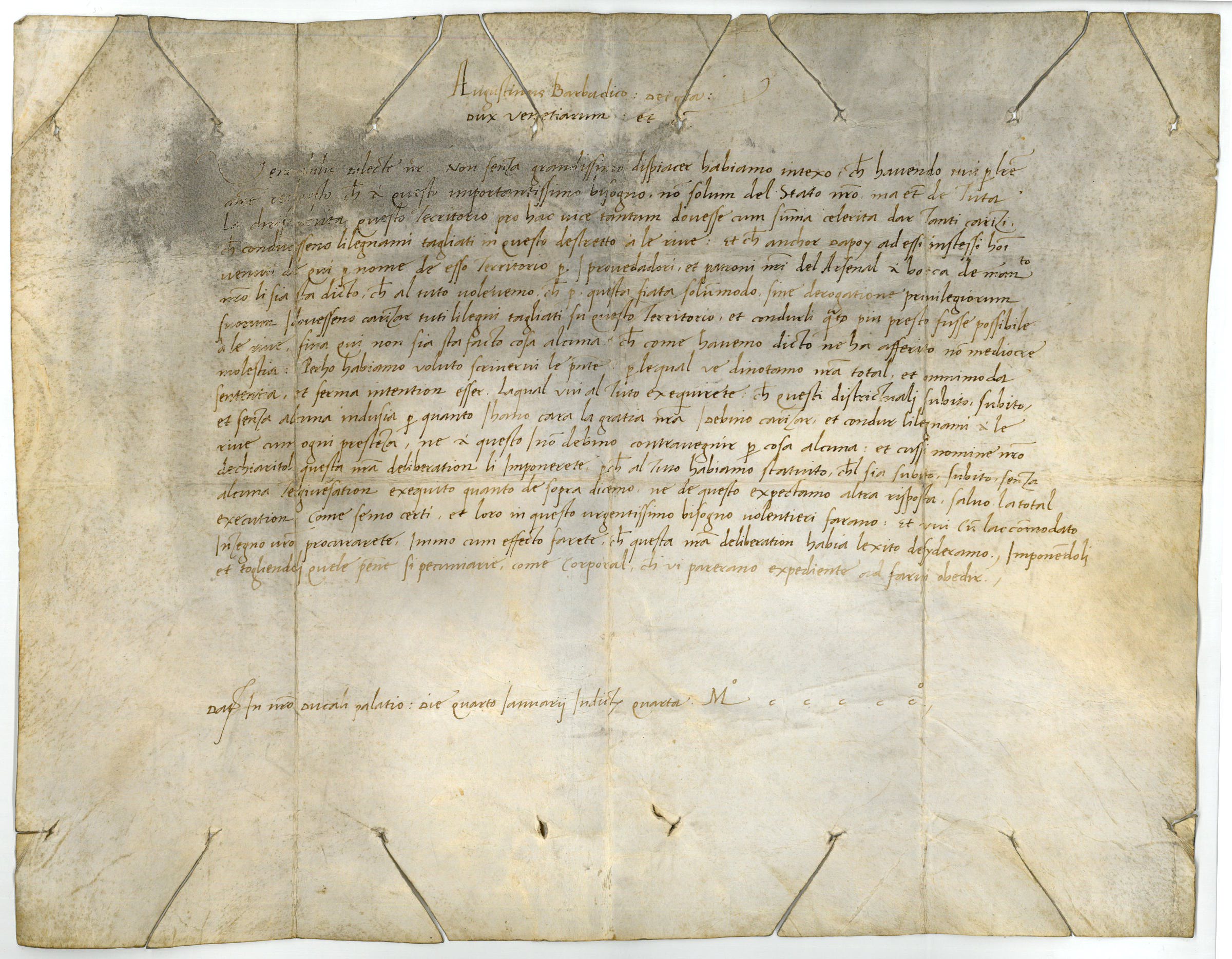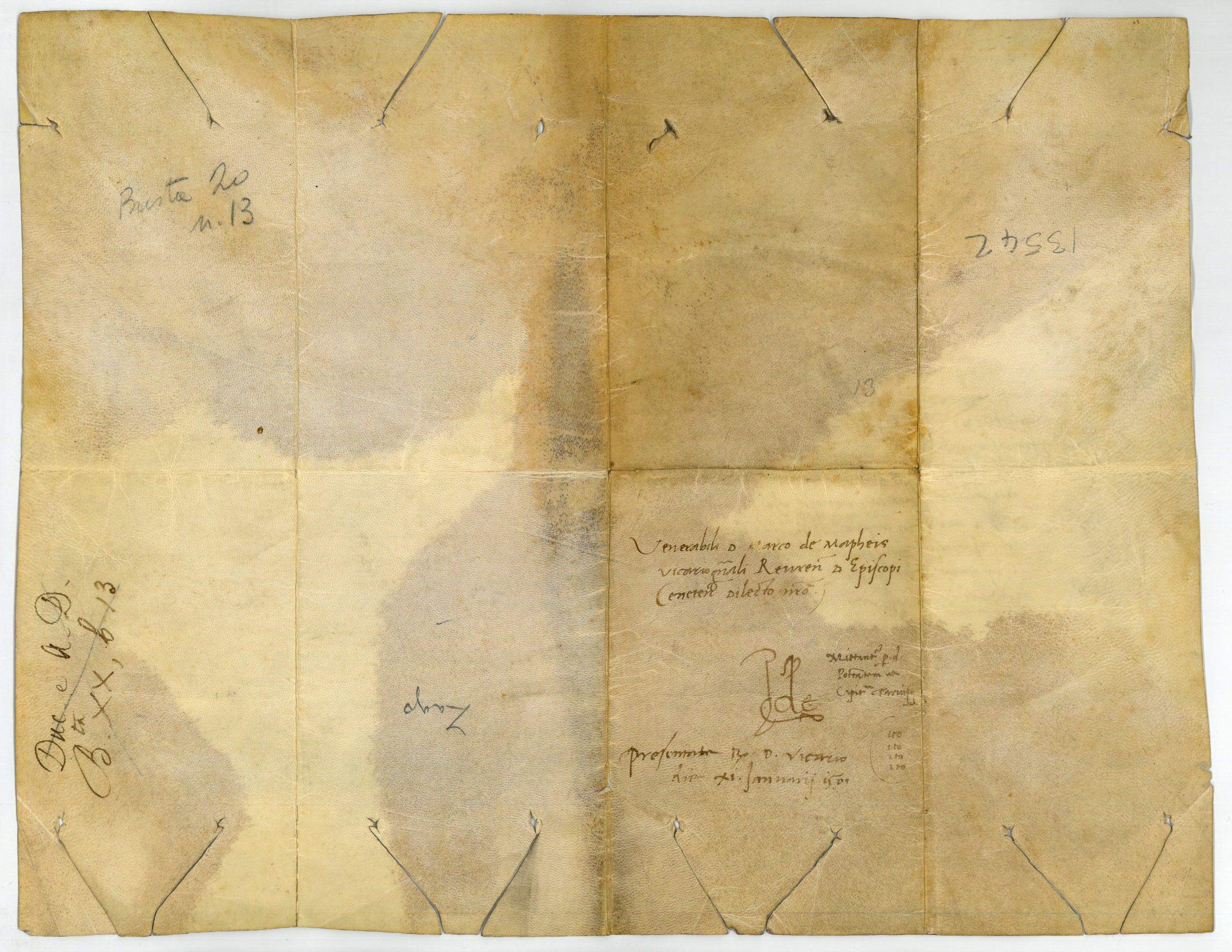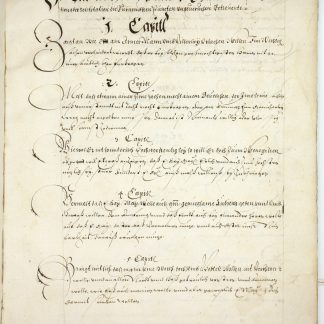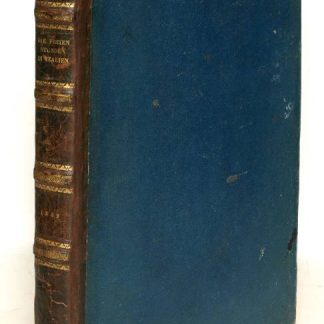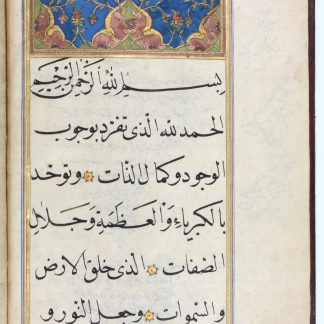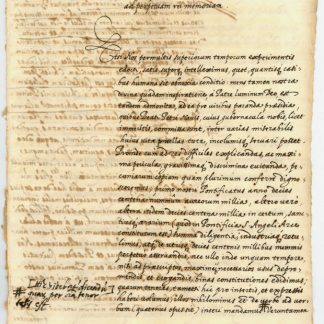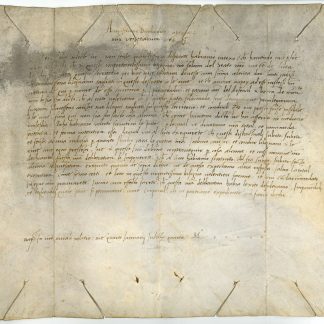Venetian timber supplies during the Ottoman-Venetian War
Document (unsigned).
Folio (275 mm x 350 mm). 1 page. Venetian Italian document interspersed with Latin. Written with brown ink on vellum.
€ 2.500,00
An order from Agostino Barbarigo, Doge of Venice, sent to Don Marco Maffei, Vicar General of the Bishop of Ceneda, requesting urgent aid with timber supplies during the 1499-1503 Ottoman-Venetian War.
Written during the third year of the war, the order asks the vicar to instruct the citizens of Ceneda (now part of Vittorio Veneto, Treviso), without any exemption based on their status, to collect and cart all available timber planks to river banks, so that they may keep the favour of Venetian government. Barbarigo requests the vicar to make this order publicly known and to impose monetary or physical penalties in the case of non-compliance. In particular, he emphasizes how the current war is an emergency not only for Venice but for "all Christendom", repeating that this is his final decision and that he will not accept any response other than the immediate execution of the order.
Agostino Barbarigo was the Doge of Venice from 1486 until his death in 1501. At the end of 15th century, Venetian relations with Austria, Hungary, France, Milan and the Pope were hostile, and these powers were inclined to encourage the Ottomans to attack Venice. Additionally, relations with Bayezid II started to be strained with the Doge's rule until the war broke out. In August 1499, the Ottoman fleet defeated the Venetian fleet and captured Lepanto. After the attempt of Venice to regain Lepanto in December 1499, the Ottoman fleet attacked Corfu; in September they immobilised the Venetian fleet in the Adriatic, capturing Modoni and Coroni. In May 1501, Venice had to agree to a treaty with the Pope and Hungary. With Venetian territories under continuous attack from the Ottoman fleet in 1501 and 1502, Venice had to recognise Ottoman gains. The present order, written in the midst of the tumultous years of the war, illustrates the magnitude of the crisis.
An English translation of the complete text is available.
Upper part of the surface is rubbed but the text is legible. 12 diagonal slits for cords, two slits on the text. No seal.

